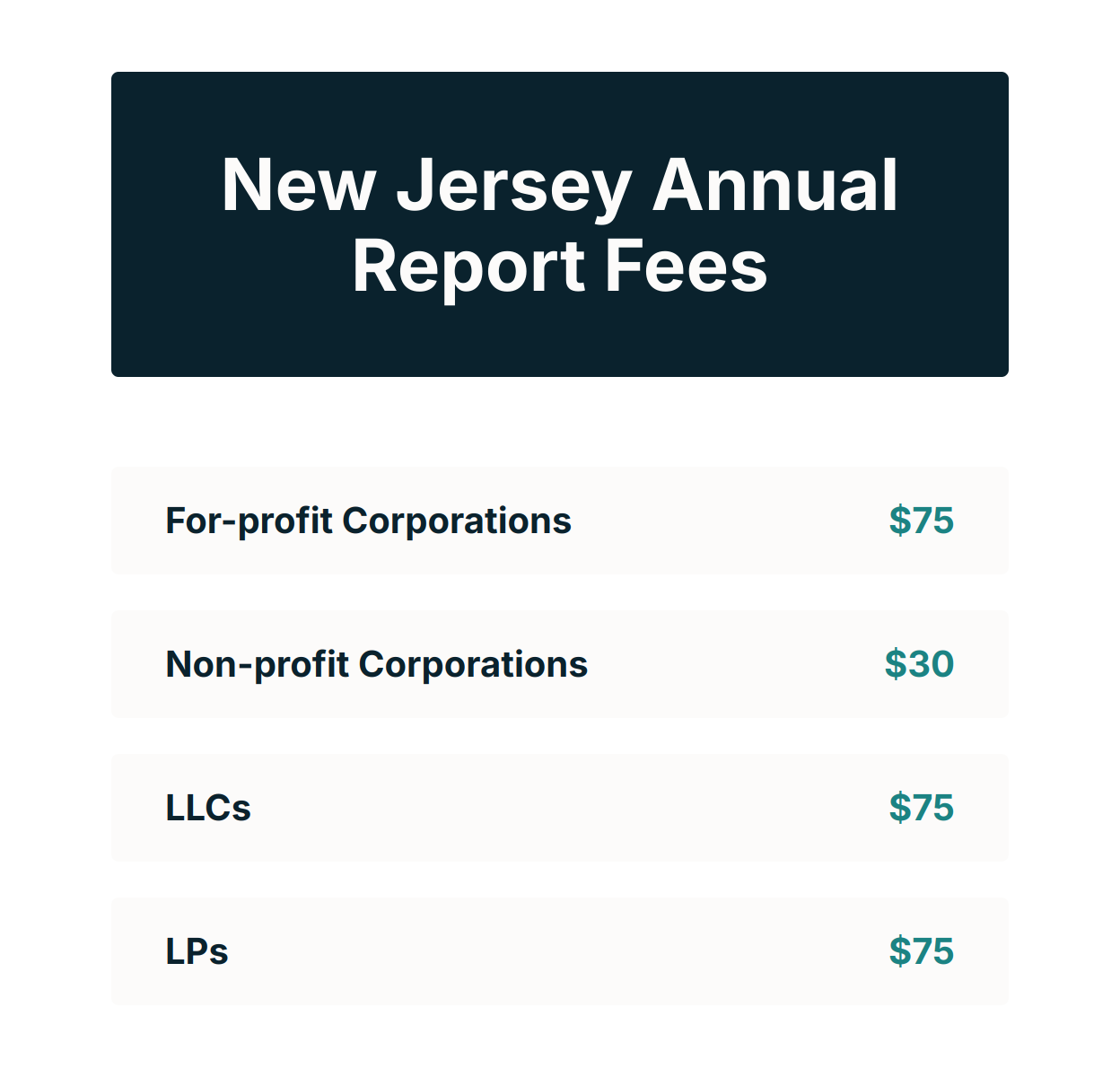Filing an annual report in New Jersey is a critical legal obligation for most business entities, including corporations, limited liability companies (LLCs), and limited partnerships (LPs) operating in the state. This annual filing maintains your company’s legal status, ensures state records are current, and preserves your business’s good standing and liability protections.
Filing your annual report serves multiple functions:
For corporations, LLCs, and LPs, the filing requirement begins the year following formation. If you form your business in 2025, your first annual report comes due in 2026. The report is due each year by the last day of your anniversary month (the month your business was formed or authorized to do business in NJ).
Early filing is only allowed in the 30 days preceding your anniversary month. Early filing beyond this window is not allowed. There are no extensions for annual report filings in New Jersey. General partnerships do not need to file an annual report in New Jersey.
The same annual report deadline rules apply to foreign corporations, foreign LLCs, and foreign LPs once they are authorized to do business in New Jersey.
Neglecting these filings can trigger serious consequences:
By prioritizing annual report filings, you're not merely satisfying a legal requirement. You're safeguarding your business's very foundation in New Jersey.
Preparing for your New Jersey annual report requires specific information. This breakdown covers everything you'll need for a smooth filing experience.
Remember that specific requirements vary slightly by business structure. Always check the most current guidelines from the New Jersey Division of Revenue and Enterprise Services for complete compliance.
With the business information we outlined above in hand, visit the New Jersey Division of Revenue and Enterprise Services website.
Digital tools can transform your annual report filing from tedious paperwork to streamlined efficiency. Modern solutions offer automated processes that cut time investment while minimizing errors.
The magic happens with automated data handling. Some platforms provide pre-filled forms using your previous year's information, requiring only verification and updates. This cuts manual data entry time dramatically.
For those managing multiple entities, technology offers exceptional advantages:
Moreover, these tools assist in managing state-specific tax obligations, ensuring compliance across all jurisdictions. By embracing these solutions, you free your team from administrative burdens to focus on strategic priorities.
New Jersey annual report filing presents several obstacles, particularly for those managing multiple entities. Here's how to overcome the most common hurdles:
Understanding the financial aspects of New Jersey annual report filings helps you optimize compliance spending and avoid unnecessary costs.
New Jersey charges the following for annual report submissions:
Payment can be made by credit/debit card (additional $3 fee) or e-check (additional $0.50–$1 fee). Changing a registered agent can be done as part of the annual report for an additional $25 fee.

Always verify current fees on the New Jersey Division of Revenue website before filing, as they may change.
There are no immediate late fees for missing New Jersey’s annual reporting deadline. However, certain regulated industries may face statutory daily penalties for late filings. If you fail to file for two consecutive years, your business will lose its good standing and may be administratively dissolved or revoked by the state.
Before dissolution, the state will send a notice to your registered agent or business address, giving you 30 days to file any missing reports and pay outstanding fees.
To reinstate a dissolved or revoked business, you must:
When administratively dissolved or revoked, your business loses liability protection and may be unable to conduct business. The company name may eventually become available for others to register, but not immediately; New Jersey retains the name for a limited statutory period before releasing it.
You may also face business disruptions, such as loss of contracts or access to business bank accounts.
Beyond annual report filings, several related compliance matters require attention, particularly for expanding businesses operating across multiple states.
Your registered agent receives crucial legal and state communications. When updating registered agent information:
If your business is based in another state, you’ll need to foreign register in New Jersey.
When operating a New Jersey-based business in other states:
There are often significant consequences to noncompliance with foreign registration requirements.
Discern offers a comprehensive solution for businesses managing multiple entities across different states. Our platform streamlines multi-state compliance and filing processes, allowing you to handle all your entity filings simultaneously at an affordable price.
Ready to automate your New Jersey compliance? Book a demo to see how Discern simplifies annual report filing and multi-state entity management.